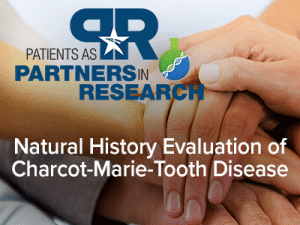Natural History Evaluation of Charcot-Marie-Tooth Disease

As new drugs are developed to treat Charcot-Marie-Tooth disease, they will need to be evaluated in clinical trials to determine whether they are safe and effective. In order to accurately measure the efficacy of a drug used to treat CMT, researchers need to know the “natural history” of the disease—how the disease would have progressed in people if the drug had not been administered.
In essence, researchers are using this natural history to establish baselines against which the results of treatment regimens may be compared, a process which is particularly challenging because of the variability between different types of CMT as well as the variability within the same types of CMT. To accomplish this task, researchers have developed standardized scales and procedures for evaluating CMT patients in clinical settings at CMTA Centers of Excellence.
At CMTA Centers of Excellence, not only can people with CMT be assured of receiving comprehensive care by a team of CMT experts, but many of the Centers work in partnership with the Inherited Neuropathies Consortium to make the the results of their evaluations available to researchers for the purpose of adding to the natural history of CMT.
About this Study
INC 6601 is a longitudinal study of individuals with CMT. The purpose of this study is to look at the natural history of CMT to see how it changes over time. Particular emphasis will be put on studying people with CMT1B, CMT2A, CMT4A, and CMT4C, though all people with CMT are encouraged to participate. Participants are invited back on a yearly basis to determine how the changes are occurring.
There are many parts to a clinic visit for this study. At the first visit, you will be assessed for eligibility, be provided informed consent, and have minimal demographics and a treatment history taken.
At each visit, your medications and medical history will be assessed, and you will be asked to:
- Have a neurological examination,
- Have nerve conduction studies performed, and
- Take a questionnaire regarding your feelings about your health.
For more information about this study and to see a list of participating CMTA Centers of Excellence, please visit www.rarediseasesnetwork.org/cms/inc/6601.





